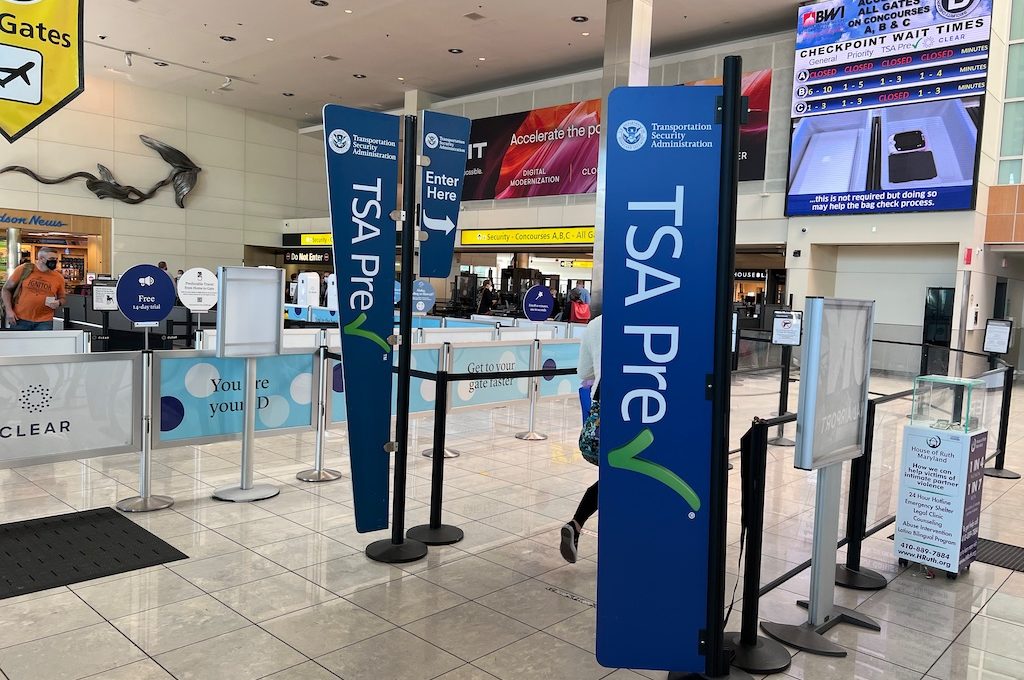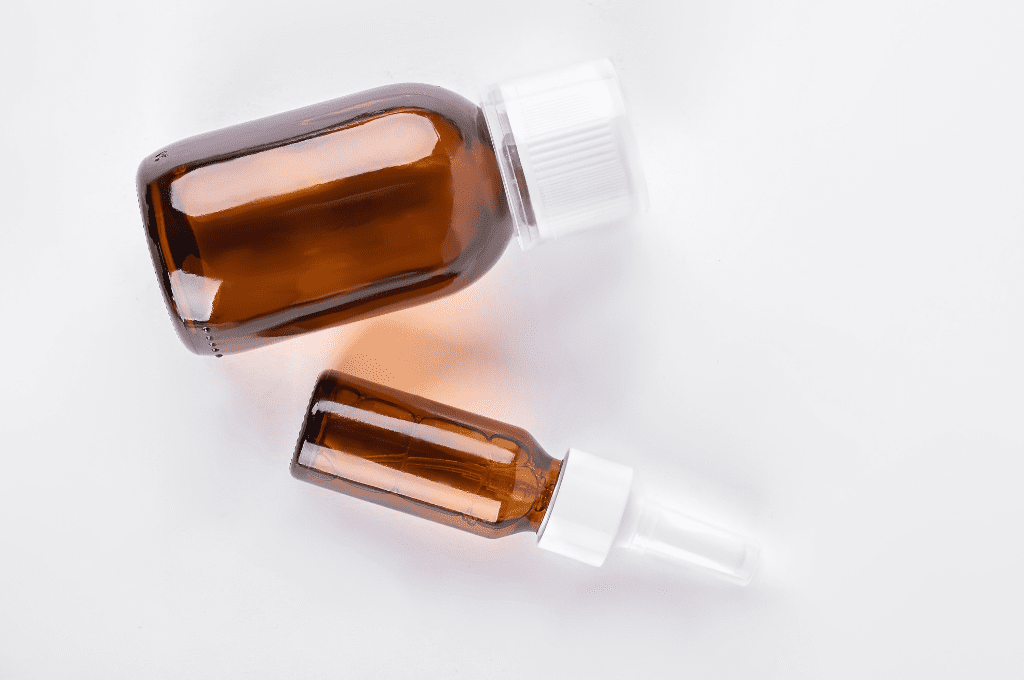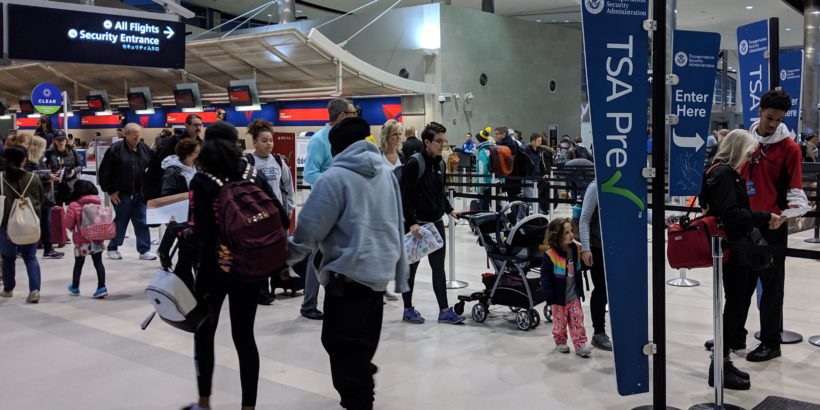For many individuals, the process of navigating airport security can be quite anxiety-inducing. However, for those with medical conditions, this experience can be even more stress-inducing.
Lots of people wonder whether or not TSA can ask about their personal medical conditions.
In this article, we aim to shed light on this matter and offer guidance on what to anticipate when going through airport security while dealing with medical conditions.
Table of Contents
Can TSA ask about your medical condition?
TSA may inquire about your medical condition but the questions usually should only pertain to those necessary for security screening.
Typically, this would mean getting clarification on the medical devices and liquids being transported through a security checkpoint although TSA does ask passengers bringing devices for certain conditions (such as diabetes) to disclose their specific medical condition.
If you have an external device or other medical object that you travel with, it could be helpful to carry a TSA notification card which contains details about your medical situation so that you don’t have to explain yourself every time you go through security.
Related: Can Airlines Refuse To Serve Sick Passengers?

Does HIPPA protect you from TSA agents?
HIPAA (Health Insurance Portability and Accountability Act) is a federal law designed to protect the privacy and security of individuals’ health information. While HIPAA establishes important safeguards for the healthcare industry, it does not extend its protections to all situations or entities.
Specifically, it only covers Health Plans, Most Health Care Providers, Health Care Clearinghouses, and all their associates.
The Transportation Security Administration (TSA) at airports is primarily focused on ensuring the safety and security of travelers and aviation. Their primary concern is not the handling or disclosure of personal health information and the specific provisions and protections of HIPAA do not apply to TSA agents at airports.
With that said, TSA agents should not be on a quest to uncover all of your personal and private health details. Instead, questions should only arise as they pertain to security screening of specific objects.
If you ever feel like a TSA agent is going too far and is forcing you to disclose details you’re uncomfortable with disclosing or is harassing you over a medical condition, you should request to speak with a TSA supervisor.
And if you feel the need to gather evidence of mistreatment, you are allowed to record a TSA agent as long as you are not interfering with screening or recording sensitive information such as the screen that shows up at the x-ray machine.
When TSA may ask about your medical condition
TSA may feel the need to inquire about your medical situation whenever you are going through screening and you are bringing in items that are usually prohibited or that require extra inspection.
Typically, the inquiry should be focused on the medical devices or objects being brought forth but sometimes that questioning bleeds over into questions about the actual medical condition.
Common items that people often bring through are medical liquids. These could be prescribed or over-the-counter but TSA allows for oversized liquids to come through when they are “medically necessary” (subject to the discretion of the agent).
If you are bringing a large liquid bottle through security, it’s possible that an agent will want some details about the contents of that bottle.
One reason is that some medically prescribed liquids could pose a hazard. For example, there are certain types of contact solution that are typically not allowed.
TSA states that the protocol for bringing medically necessary liquids through security is for you to declare them and “separate them from other belongings before screening begins.” They recommend that you label your medications to facilitate the security process but that is not required.
When you declare these items, that is the time when some questions might be asked. In addition to inquiring about the contents, an agent may also inquire about the quantity that you are bringing through.
You can make your case stronger by explaining why the amount you are bringing is necessary for your flight or the duration of your trip. Also, if you are not able to purchase the item in the sterile area or at the destination, that can also help your case.
Common examples of medically necessary “liquids” include:
- Prescription liquids, creams, and gels;
- Breast milk, infant formula, baby/toddler food (to include puree pouches), and toddler drinks;
- Ice, gel, and freezer packs used to cool breast milk, infant formula, and or other medically necessary items;
- Hand Sanitizer
Note that sunscreen is not typically found to be medically necessary.
When bringing larger liquids through, it’s very possible that they will be subjected to additional testing. This could be a closer look through the x-ray machine, swabbing, or some other type of testing. In the event that your liquids “fail” the test, they will not be allowed to get through security.

Instances when your medical situation may be brought up
One of the most common situations where your medical details will come up is if you have diabetes. If you are bringing a Blood Sugar Test Kit, TSA states to “notify the TSA officer that you have diabetes and are carrying your supplies with you.”
If you are bringing an external medical device with you then you also may need to disclose that particular device.
The type of devices that you will need to inform the TSA officer of include: a bone growth stimulator, spinal stimulator, neurostimulator, port, feeding tube, insulin pump, ostomy or other medical device attached to your body.
You’ll need to let the TSA officer know where the device is located and you can expect that area to be closely inspected by an agent, although they should use special care. You may also get a pat down.
As far as having to explain the details of a specific medical condition requiring the device, that’s not always necessary.
But one strategy that people use is that they utilize the TSA notification cards or other medical documents which describe their condition. This way, all they have to do is quickly show a card and that will disclose all of the necessary details.
When bringing nebulizers, CPAPs, BiPAPs and APAPs, they are are allowed in carry-on bags but must be removed from the carrying case and undergo X-ray screening. Don’t be surprised if you get questioned about these, especially if you forget to remove them from your carrying case. And also don’t be surprised if they require explosives trace testing.
Certain portable oxygen concentrators are permitted onboard the aircraft, including Inogen One, Sequal Eclipse, Airsep Lifestyle but don’t be surprised if you get questioned or these require a closer inspection.
Finally, it’s possible that when going through a full body scanner, the scanner could pick up on things like scar tissue. You may need to explain to an agent that you had a surgery or medical procedure that created scar tissue in that region of your body.
If you have medical implants, it helps to be familiar with the process of TSA pat downs which we have detailed thoroughly.
Final word
For the most part, a TSA agent should not be requesting details about your medical condition unless the questions relate to medical objects or medically necessary liquids you are trying to get through security.
The questions should focus on allowing them to discover the contents and composition of the items and not necessarily the details of your diagnosis.
With that said, providing context in the form of a TSA notification card can help expedite the screening process by allowing the agent to quickly put together what you are bringing through security and why.
Daniel Gillaspia is the Founder of UponArriving.com and the credit card app, WalletFlo. He is a former attorney turned travel expert covering destinations along with TSA, airline, and hotel policies. Since 2014, his content has been featured in publications such as National Geographic, Smithsonian Magazine, and CNBC. Read my bio.

